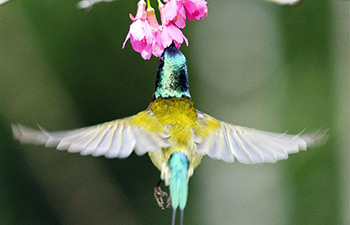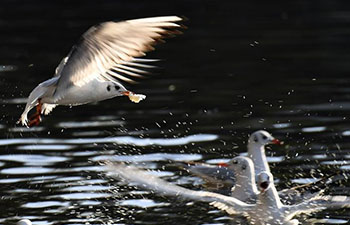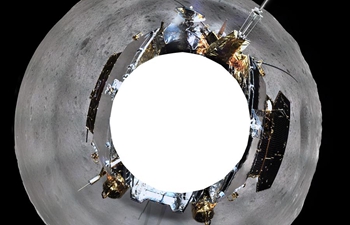SYDNEY, Jan. 18 (Xinhua) -- An international team of scientists will travel to Antarctica this month to carry out the most comprehensive study ever into blue whales and the krill they feed on.
The 28 person team will embark from the Australian city of Hobart on Saturday aboard the marine research vessel, Investigator.
"We have a world-class combination of people, research ship, and cutting-edge technologies. It's going to be an incredible seven-week voyage," chief scientist Dr Mike Double said.
A crucial focus of the study will be on the whale's excrement as a potential "fertiliser" of the ocean.
"We want to find out if the shape of krill swarms affect the distribution and behaviour of blue whales, and if the blue whales themselves fertilise the ocean with their poo which grows more algae for krill to eat," Double said.
The team will use drones to monitor the whales and collect samples from the surface of the water, as they test the hypothesis that it is the iron in the whales poo which feeds the microscopic phytoplankton, which in turn make up the base of the Antarctic food web.
"We'll sample water in areas with whales and krill, whales only, krill only, and neither species," deputy chief scientist Dr Elanor Bell said.
"The sampling will reveal where the iron goes, how fast it sinks, and whether primary production increases over time."
Blue whales can grow up to 30 metres in length and are the largest animal in the world, consuming up to three tonnes of krill a day.
However, with their habit of diving to immense depths and avoiding land, relatively little is known about these giants of the deep.

















